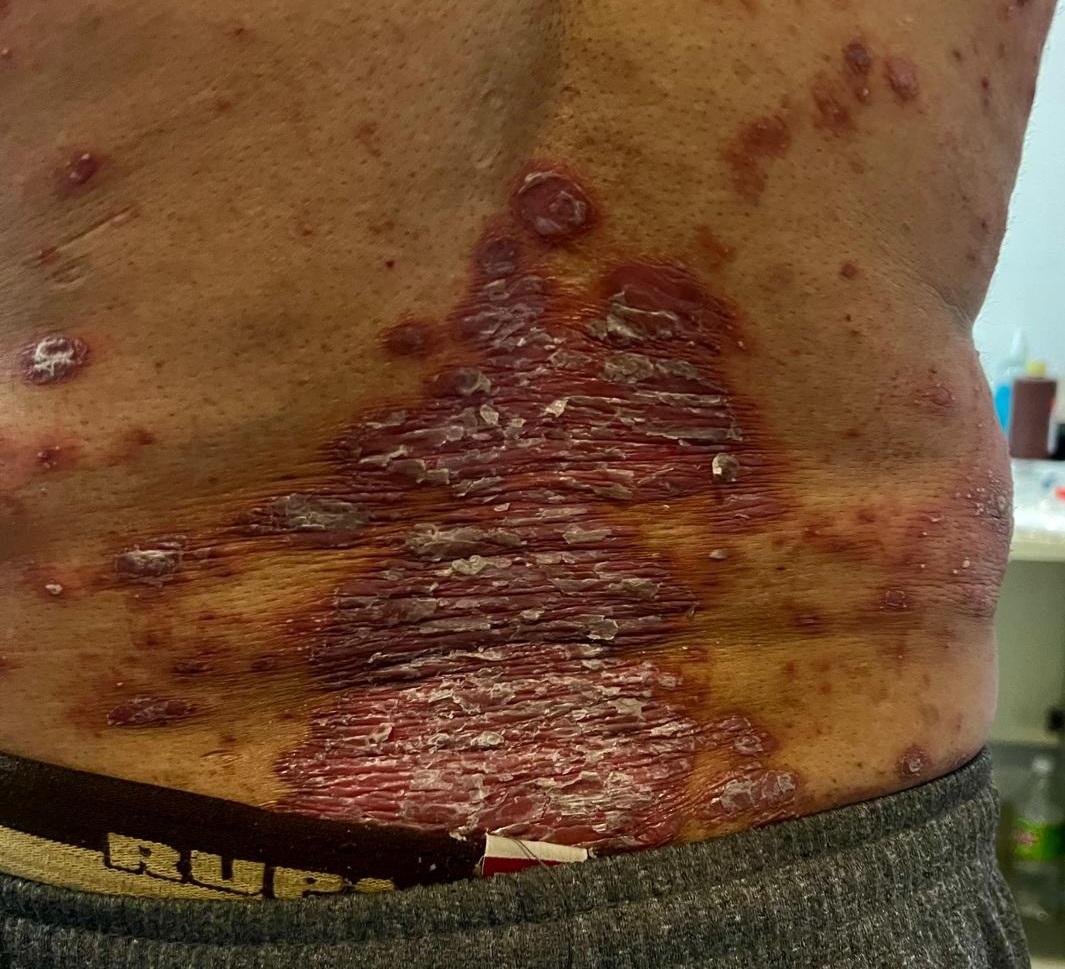
Psoriasis
Psoriasis is a chronic autoimmune skin condition characterized by the rapid buildup of skin cells, leading to thick, red, scaly patches on the skin. These patches, also known as plaques, can appear anywhere on the body but are most commonly found on the scalp, elbows, knees, and lower back. Psoriasis can also affect the nails and joints, causing a condition known as psoriatic arthritis.
Causes of Psoriasis
Immune System: Psoriasis is an autoimmune disorder where the immune system mistakenly attacks healthy skin cells, causing them to multiply too quickly.
Genetics: A family history of psoriasis increases the risk of developing the condition, suggesting a genetic predisposition.
Environmental Triggers: Factors such as stress, infections, skin injuries, smoking, alcohol consumption, and certain medications can trigger or exacerbate psoriasis.
Types of Psoriasis
Plaque Psoriasis: The most common type, characterized by dry, raised, red skin lesions covered with silvery scales.
Guttate Psoriasis: Often starts in childhood or young adulthood, presenting as small, water-drop-shaped, scaling lesions on the trunk, arms, legs, and scalp.
Inverse Psoriasis: Causes bright red, shiny, and smooth patches of skin in areas such as the armpits, groin, and under the breasts.
Pustular Psoriasis: Characterized by white pustules (blisters of noninfectious pus) surrounded by red skin. It can be localized to certain areas or cover large areas of the body.
Erythrodermic Psoriasis: The least common but most severe form, causing widespread redness and exfoliation over large areas of the body.
